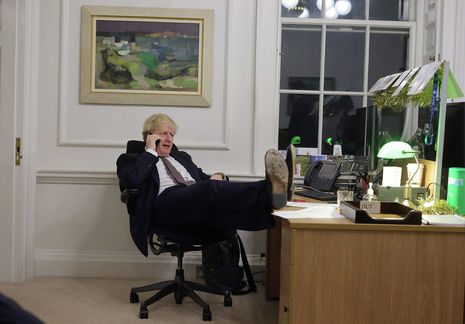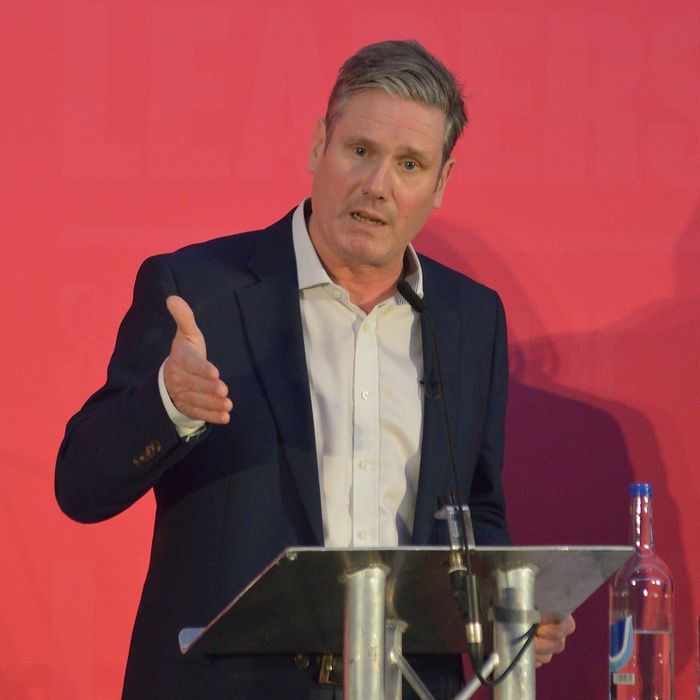No to Tory Corruption
Talal Hangari argues that the moneyed interests of the elite donors funding the Conservative Party pose a distinct threat to British democracy

Last week, the Financial Times reported that members of the Advisory Board, a secretive group of big donors to the Tory party, ‘enjoy frequent and direct access to the most powerful people in government.’ It appears that several individuals have bought their way onto the Board by each annually donating a sum of £250,000 to the party. In exchange, they are given monthly meetings with Boris Johnson or Rishi Sunak. A Conservative spokesman defends this cash-for-access system on the basis that party fundraising is ‘a legitimate part of the democratic process.’ They further explain: ‘[g]overnment policy is in no way influenced by the donations the party receives. They are entirely separate.’ These justifications are scarcely convincing.
First, their defence fails on any definition of democracy which holds that government policy ought to be formed in accordance with the wishes of the majority of the population. Party fundraising is legitimate when it does not conflict with this basic principle — but where politicians are purchased and pushed to conform to the wishes of a small wealthy minority, there is no meaningful democracy.
“They do not donate to the Conservatives for nothing, but with a view to shaping the party’s policies to serve their interests.”
Second, their defence fails on empirical grounds as well as any rational interpretation of the behaviour of the Advisory Board. At a June meeting with Johnson, the Advisory Board donors ’boxed the prime minister’s ears over the troubles in his cabinet as well as the economic direction of the country under his leadership.’ In other words, the donors directly confronted Johnson on matters of government policy and made their expectations of him clear. They do not donate to the Conservatives for nothing, but with a view to shaping the party’s policies to serve their interests. It would be utterly irrational for individuals to give hundreds of thousands of pounds of their personal fortunes to a political party if they did not expect that party to reciprocate in some way. Privileged access to senior ministers helps cement this exchange at the expense and exclusion of the broader public.
But Johnson’s relationship with wealthy elites will not surprise those familiar with the Tories’ funding sources. Since 2010, the Conservatives have received £130 million from the Leader’s Group, another donor club which individuals can join on the condition that they donate at least £50,000 to the party annually. Being enthralled by moneyed interests, the Conservatives are, unsurprisingly, the party of the few rather than the many. A brief review of the policies of Conservative governments over the last decade will make this clear.
“During the last year of the pandemic, the wealth of British billionaires increased by over a fifth. In a similar period, food bank use increased by about one third.”
The austerity imposed by David Cameron and George Osborne seems to have been forgotten by a good deal of the political establishment, but some of our memories are not so short. The UN Special Rapporteur on extreme poverty and human rights, Philp Alston, published a report on the UK in 2018, finding that Britain’s social safety net had been ‘deliberately removed and replaced with a harsh and uncaring ethos.’ Alston observed that ‘[i]t is hard to imagine a recipe better designed to exacerbate inequality and poverty and to undermine the life prospects of many millions’. At the same time as this harsh and uncaring regime was being imposed on the poorest, the richest saw their wealth more than double between 2009 and 2015. Such developments should not be viewed as aberrant; they are to be expected given the anti-democratic priorities of the Tory party.
Regardless of Boris Johnson’s attempts to appeal to the whole country with his talk of ‘levelling up’, the same tendency to serve the elite has manifested in the government’s COVID-19 pandemic response. Nearly £1 billion in government contracts ’have been awarded to 15 companies with directors, or people with controlling interests over these companies, who have donated £12 million to the Conservative Party’. That is to say, public money has been funnelled to Tory donors in vast quantities. The problematic nature of these transactions is obvious: any argument that those bodies which were awarded contracts are the best suited to the job is naturally suspect as a consequence of their relationship with the Conservative party. This suspicion is further justified when many COVID contracts have been awarded without competition and in breach of transparency rules.
During the last year of the pandemic, the wealth of British billionaires increased by over a fifth. In a similar period, food bank use increased by about one third. This stunning inequality is unlikely to be addressed by a Conservative party whose raison d’etre is to protect the existing centres of wealth and power. Yet Labour leader Keir Starmer’s current search for rich donors to replace the subscription fees of a reduced party membership gives little reason to think that the opposition offers a viable alternative to the current plutocracy. To build a Britain that works for the many, the impetus for change will have to come from the ground up.
 News / Cambridge academics sign open letter criticising research funding changes22 February 2026
News / Cambridge academics sign open letter criticising research funding changes22 February 2026 News / Supporters protest potential vet school closure22 February 2026
News / Supporters protest potential vet school closure22 February 2026 News / University Council rescinds University Centre membership20 February 2026
News / University Council rescinds University Centre membership20 February 2026 News / Hundreds of Cambridge academics demand vote on fate of vet course20 February 2026
News / Hundreds of Cambridge academics demand vote on fate of vet course20 February 2026 Comment / A tongue-in-cheek petition for gowned exams at Cambridge 21 February 2026
Comment / A tongue-in-cheek petition for gowned exams at Cambridge 21 February 2026









